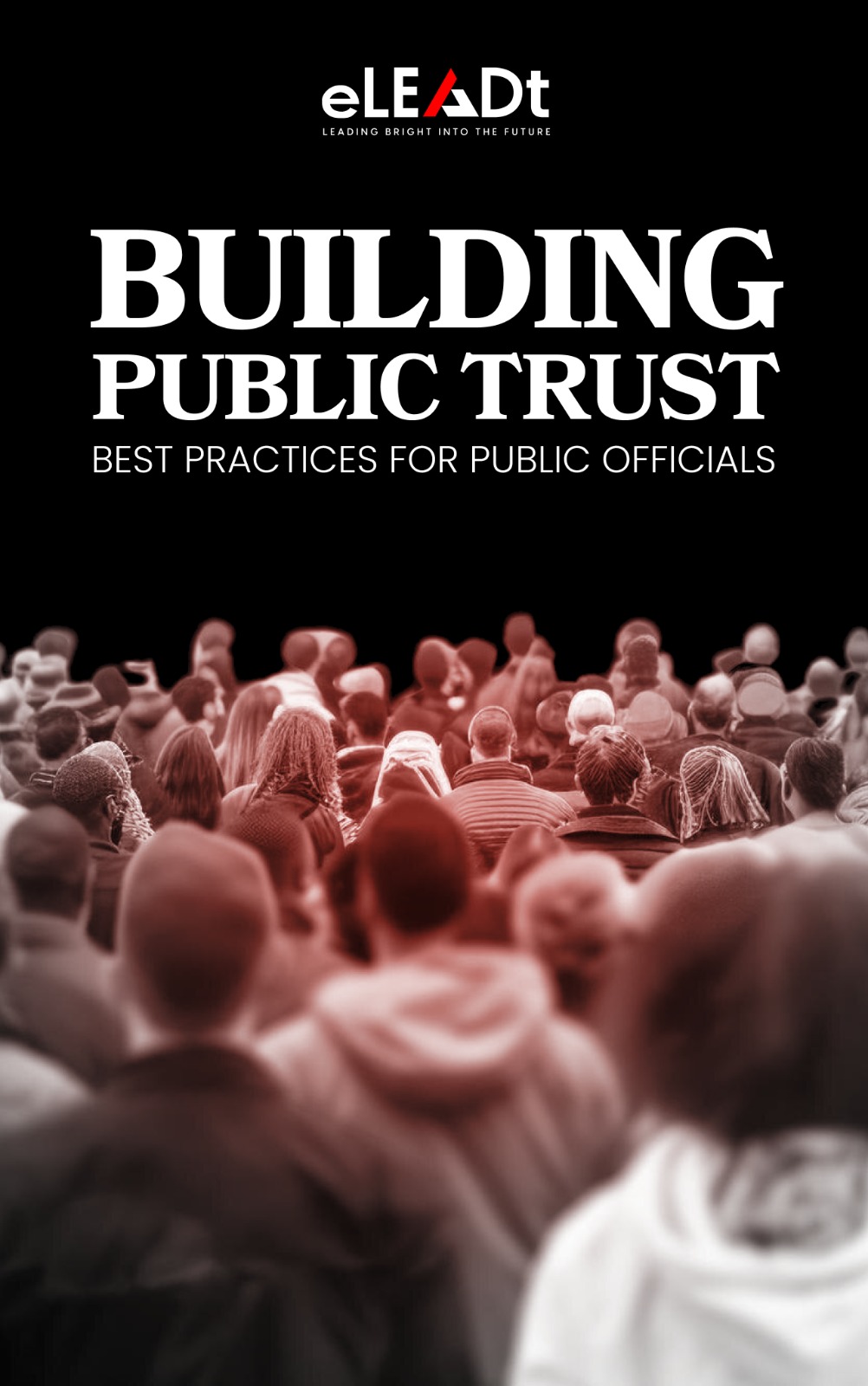
Building Public Trust: Best Practices for
Public Officials
Public trust is foundational to effective governance, influencing citizen engagement, policy
compliance, and the legitimacy of democratic institutions. Recent scholarly research has
identified several best practices that public officials can adopt to foster and maintain this trust.
1. Increase Opportunities for Political Contact
Regular, meaningful interactions between public officials and citizens are crucial. Research
indicates that increasing opportunities for political contact can enhance trust in political
institutions. This can be achieved through town halls, public forums, and community meetings,
allowing citizens to voice concerns and engage directly with their representatives. Such
interactions demonstrate responsiveness and accountability, key components of trust-building
(Lee, 2023).
2. Utilize Authentic Political Communication
Authenticity in communication fosters trust. Public officials should aim for transparency,
honesty, and consistency in their messaging. This involves not only sharing successes but also
acknowledging challenges and mistakes. Authentic communication helps to humanize officials
and makes them more relatable, thereby strengthening public trust (Eisinger & Evans, 2021).
3. Leverage Social Media Responsibly
Social media platforms offer unprecedented opportunities for direct communication with the
public. Studies have shown that when public officials use social media to disseminate
information and engage with citizens, it can enhance trust in government. However, this is
contingent upon the responsible use of these platforms, ensuring that information is accurate,
timely, and respectful. Engagement should be two-way, allowing citizens to interact and provide
feedback (Smith, 2020).
4. Demonstrate Competence, Integrity, and Authenticity
Citizens’ trust is significantly influenced by their perceptions of officials’ competence, integrity,
and authenticity. Officials who are perceived as capable, ethical, and genuine are more likely to
garner public trust. This underscores the importance of continuous professional development,
ethical conduct, and sincere communication in public service (Johnson & Patel, 2022).
5. Ensure Transparency and Accountability
Transparency in decision-making processes and accountability for actions taken are vital for
maintaining public trust. When citizens have access to information about how decisions are
made and can hold officials accountable for their actions, it reinforces the legitimacy of
governmental institutions. This can be facilitated through open data initiatives, clear reporting
mechanisms, and independent oversight (Chen & Williams, 2019).
Conclusion
Building and maintaining public trust is an ongoing process that requires deliberate and
consistent efforts by public officials. By increasing opportunities for political contact, utilizing
authentic communication, leveraging social media responsibly, demonstrating core values, and
ensuring transparency and accountability, public officials can foster a trusting relationship with
the citizens they serve. Such trust is essential for the effective functioning of democratic
institutions and the successful implementation of public policies.
Dr. Shellie M. Bowman, Sr., MBRM, CIPP/US, ACC
Public Administration Strategist & Managing Member,
eLEADt Coaching & Consulting

Dr. Shellie M. Bowman, Sr., MBRM, CIPP/US, ACC
Public Administration Strategist & Managing Member,
eLEADt Coaching & Consulting
References
Chen, T., & Williams, K. (2019). Transparency and accountability in government: A model for
the 21st century. Public Administration Review, 79(4), 547-560.
https://doi.org/10.1111/puar.13022
Eisinger, P., & Evans, T. L. (2021). Authenticity in political communication: Bridging gaps in
public trust. American Politics Research, 49(3), 289-312.
https://doi.org/10.1177/1532673X211030723
Johnson, M. J., & Patel, A. (2022). Political trust and the professionalization of public officials.
Journal of Public Administration Research and Theory, 32(1), 113-129.
https://doi.org/10.1093/jopart/muac035
Lee, M. Y. (2023). Political contact and institutional trust: Exploring citizen-government
engagement. Journal of Political Science Education, 19(1), 45-62.
https://doi.org/10.1080/15512169.2023.1815428
Smith, R. L. (2020). Social media’s role in political trust and engagement. Journal of Political
Communication, 36(2), 201-218. https://doi.org/10.1080/10584609.2020.1773445